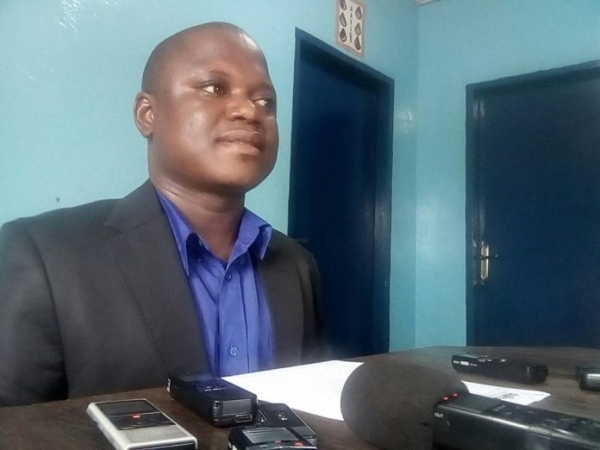CENTAL’s executive director Anderson Miamen made the disclosure on Tuesday, January 29, 2019, at a news conference in Monrovia, when he released the 2018 Corruption Perception Index report, with Liberia being 32nd among the worst performers countries, including Guinea, 28, and Sierra Leone, 30.
Mr. Miamen said that the situation speaks to government’s inability to address an entrenched culture of impunity and enforce existing anti-corruption laws and policies.
He added, “Limited or no effort to comprehensively audit the past administration and prosecute alleged corrupt officials; violation of the National Code of Conduct for public officials; and limited moral and financial support to public integrity institutions are counterproductive to the fight against corruption.
Miamen said in order to reverse the trend and improve the country’s standing in the region and globally, officials of the three branches of government (Executive, Judiciary and Legislature) must declare their assets, incomes and liabilities in full compliance with the National Code of Conduct.
“As recently reported by the Liberia Anti Corruption Commission (LACC), the current limited compliance by officials, especially among those in the Executive and Legislature, is worrisome and needs urgent attention. Declarations, including officials from the previous government, must be verified, findings published and recommendations fully implemented,” Mr. Miamen said.
He said that there is a need for a comprehensive audit of the past administration to be commissioned, to ensure that those who embezzled public resources are identified and prosecuted in accordance with the law.
“Ensure the independence and vibrancy of anti-corruption institutions by giving them full moral, financial and logistical support to effectively operate. Government needs to ensure a safe and secure environment for the media, civil society and other advocates to thrive,” Mr. Miamen said.
He said Sub-Saharan Africa remains a region of stark political and socioeconomic contrasts and many longstanding challenges.
“While a large number of countries have adopted democratic principles of governance,” According to Mr. Miamen, “several are still governed by authoritarian and semi-authoritarian leaders.”
“Autocratic regimes, civil strife, weak institutions and unresponsive political systems continue to undermine anti-corruption efforts. Countries like Seychelles and Botswana, which score higher on the CPI than other countries in the region, have a few attributes in common. Both have relatively well-functioning democratic and governance systems, which help contribute to their scores,” he said.
The Corruption Perception Index was established in 1995 and is used to measure perceptions of corruption in the public sector in different countries and territories around the world.
It scores and ranks countries based on how corrupt their public sectors are perceived, drawing on 13 surveys of experts and business people.
The score ranges from 0 to 100, where 0 equals the highest level of perceived corruption, while 100 equals lowest level of perceived corruption.
This year, 180 countries were targeted, just as in 2017. The results paint a sadly familiar picture: more than two-thirds of countries score below 50, while the average score is just 43.
Perhaps most disturbing is that the vast majority of countries assessed have made little to no progress, including Liberia which has been among the worst declining countries since 2012—from a CPI score of 41, which showed appreciable progress then; we have since dropped by 9 points to 32.
Meanwhile, the worst-performing regions are Sub-Saharan Africa, with an average score of 32 since 2017, and Eastern Europe and Central Asia, with an average score of 35. Although no country is free of corruption, the countries at the top share characteristics of open corruption and a crisis of democracy in Africa

